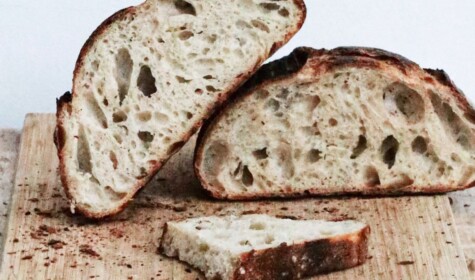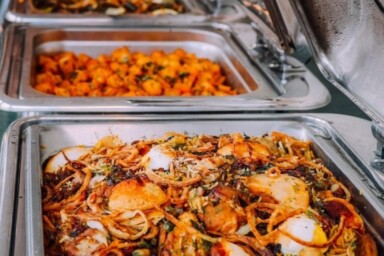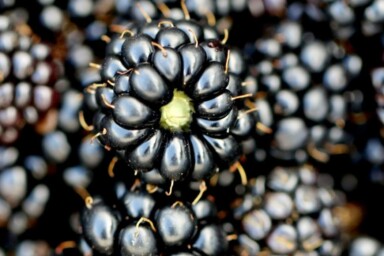When I started my Masters in Gastronomy at the University of Gastronomic Sciences, I did not feel that school was feeding me all the information I needed to fully understand the environmental consequences of my eating and food related choices. They were, however, feeding me plenty – from coffee, beer and wine to cheese, chocolate and honey tastings. We had cooking lessons and themed dinners with the whole class, which we very quickly graduated to doing in our spare time too. Sitting around a dinner table with people from all over the world, I was more aware than ever of ‘how Dutch’ I am. During every dinner I attended or co-hosted, cultural food differences and cultural (food) exchanges were the primary topics discussed and everybody listened, observed and asked questions. Although I was incredibly grateful for these experiences, I was still struggling to put the pieces of the puzzle together, until visiting professor Barny Haughton, founder of Square Food Foundation, gave us a course on Food Education.
One of the first things Barny will teach you is that Food Education is not just about nutrition and health. Food education is inextricably linked to social and environmental wellbeing.
‘If we want resilient food systems, we need resilient communities and if we want resilient communities, we need a food educated society,’ says Barny.
This is a message that Barny – and many like-minded others – has been spreading during his 20 year ‘fight’ to put Food Education on the curriculum of all primary and secondary schools. Inspired by Barny’s holistic approach, I volunteered to work the four weeks before Christmas at Barny’s Square Food Foundation. Although the team were still trying to figure out how to deal with the new COVID-19 lockdown regulations, it simultaneously made them more determined to spread their vision of good and accessible food: children of all ages and their parents, should be empowered to buy and cook the food that will feed their souls and nourish their bodies. The recipes and accompanied meal-kits that the Square Food Foundation team prepared, sought to address some of the economic challenges facing many local families during the pandemic – such as supplying ingredients for meals with a long shelf life (in case the family does not have a fridge) – in an attempt to empower all children to cook and take care of themselves. I felt fortunate to help with delivering the Christmas Hampers which were filled with donated products. The experience was as heart-warming as it was heart-breaking; you think you know the circumstances less fortunate people live under, but you do not. I left Bristol at the same time that England went into an even stricter lockdown and thus the importance of food education felt even more pressing. Food soothes the soul and feeds the brain and all children should be given access to the tools that can help them to understand the important role that food plays in their lives.
Upon my departure Barny asked if I would be interested in working alongside him on a project called ‘The Story Of Our Food’, in partnership with The Sustainable Food Trust’s Harmony Project. A few months prior, he and Richard Dunne, Director of the Harmony Project, were introduced to each other by Chief Executive of the SFT, Patrick Holden. Their relationship blossomed as they found they shared a similar mission: to shift practices so that an understanding of sustainable food systems, from farm to fork, are embedded within all forms of learning, in primary and secondary schools, cookery schools and on farms as an educational stage. The Harmony Project team worked with us to explore how Nature’s principles of Harmony (Interdependence, Cycles, Adaptation, Health, Diversity, Oneness and Geometry) can be the building blocks of a food-centred curriculum. Over the past six months, we have been working together, gathering information by participating in roundtable discussions and giving each other homework (as Barny likes to call it), to setup a pilot project: The Story Of Our Bread. This week-long programme of activities is now being piloted in a local, Bristol primary school. The aim of The Story of Our Breadis to explore enquiry questions such as, ‘where does bread come from?’, ‘how do we use it?’ and ‘what does it taste like?’ linked to subject areas like geography, history, maths and art. Not to mention practical cookery sessions led by the Square Food team. The team hope that this pilot will act as a taster for what food education could look like if delivered across the school year, with different seasonal foods as the focus.
I came to realise that there is a lot that you can learn about how the world works from a bag of flour and a willingness to bake bread. Bread (and many other foods when explored in detail) can be used as a tool for exploring cultural similarities and differences. Where did your bag of flour come from? Which countries did it pass through? Which type of wheat do you use to make your bread? When was the seed planted and when was the wheat harvested? When applied to education, these questions can be expanded into activities, such as, can you write a story or poem about the bread you eat in the morning, afternoon or evening? Can you make a drawing of the tastiest bread you have ever eaten? How does bread taste, smell and feel?
One of the things that I learnt during my time working with Barny, is that both children and adults learn by doing and feel empowered when they do something right. This confidence building can create a ripple effect throughout other parts of the individual’s life, which can positively impact their relationships with friends, family and the wider community. The simple act of baking bread together teaches us to work together, to communicate and to create – and it is a lot of fun!
Imagine a generation of school leavers who understand the bigger picture of food and the significant connections between food, human and environmental health. If food education were central to a child’s school experience, our young people would be better placed to take control of the food system in the future, one loaf at a time.
The importance of Food Education is that no matter the child’s circumstances they are able to understand how food shapes their environment and day-to-day lives. This way they will be able to take control one pancake, pizza or pita at a time.
There are many organisations across the UK doing some fantastic work around food education. If you are interested in learning more about The Story Of Our Food project and our wider collaborations, The Square Food Foundation and Harmony Project teams would love to hear from you. You can email info@theharmonyproject.org.uk for further information.






